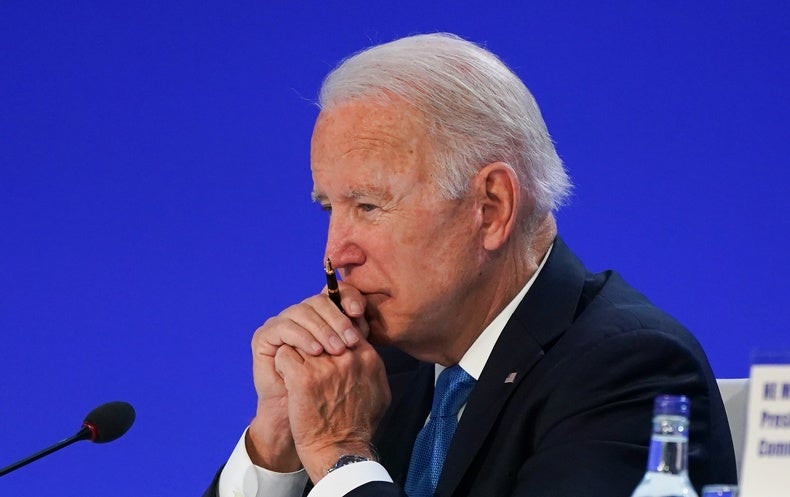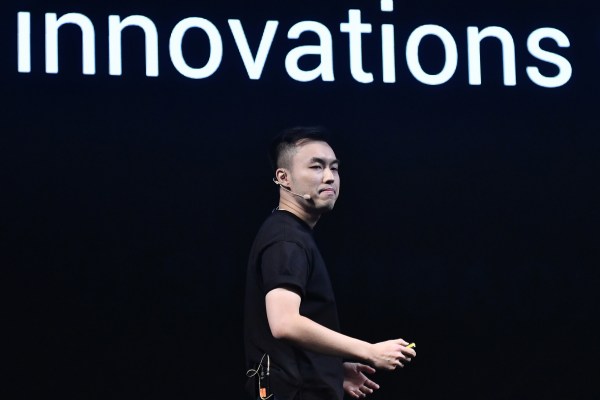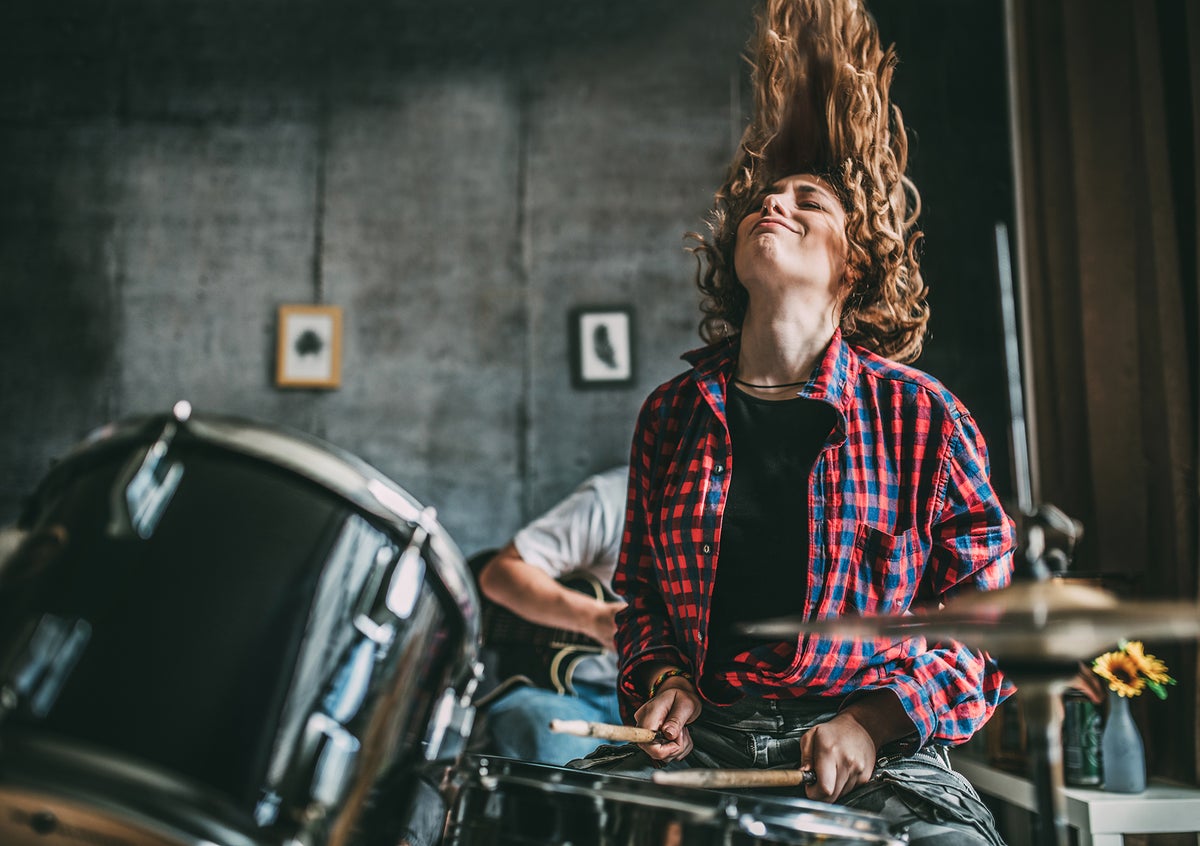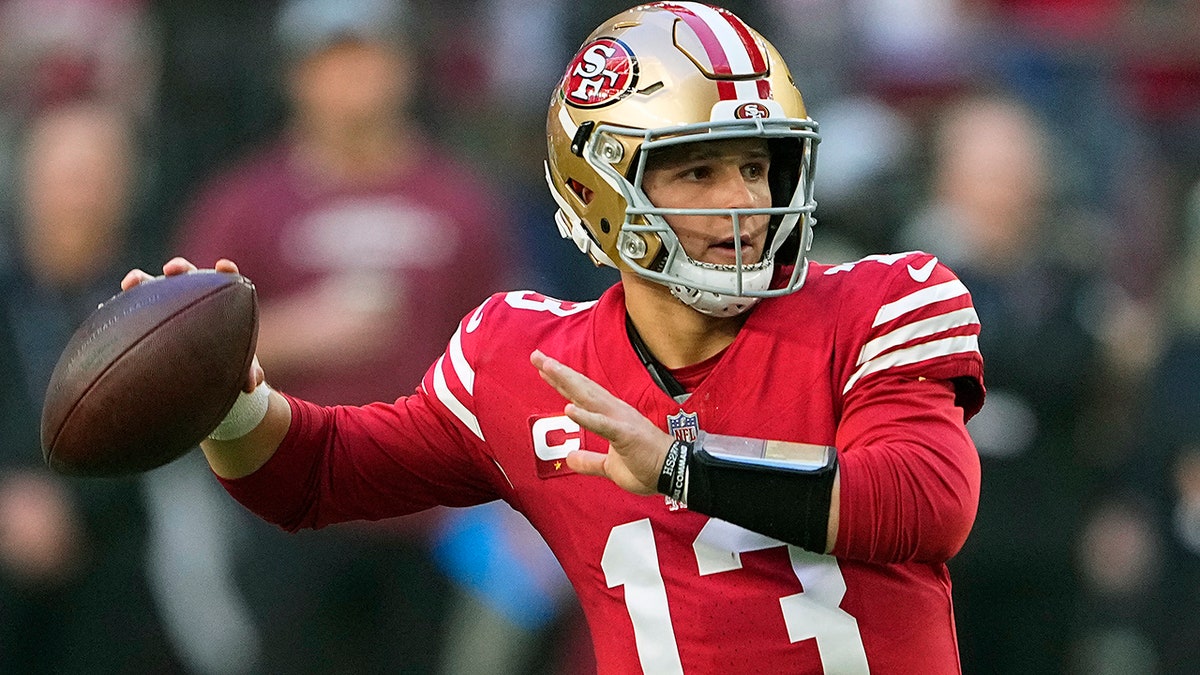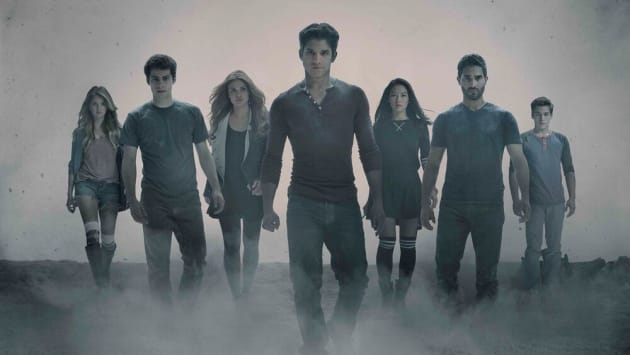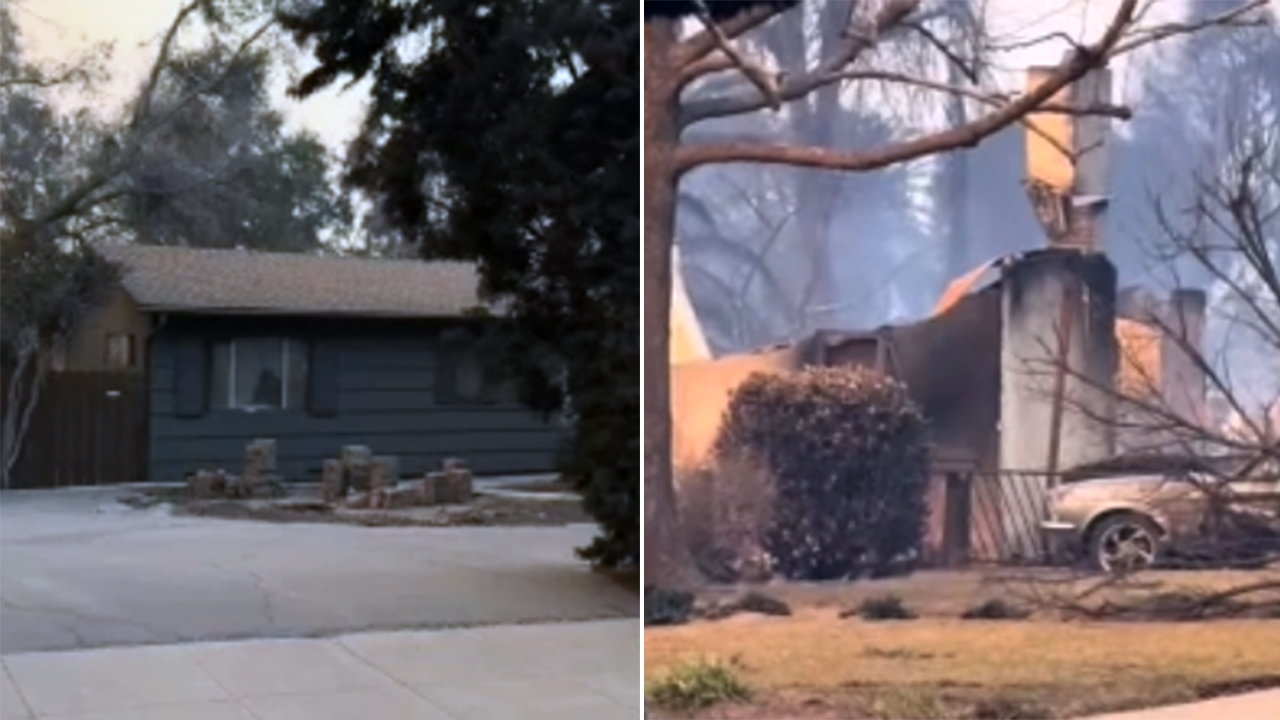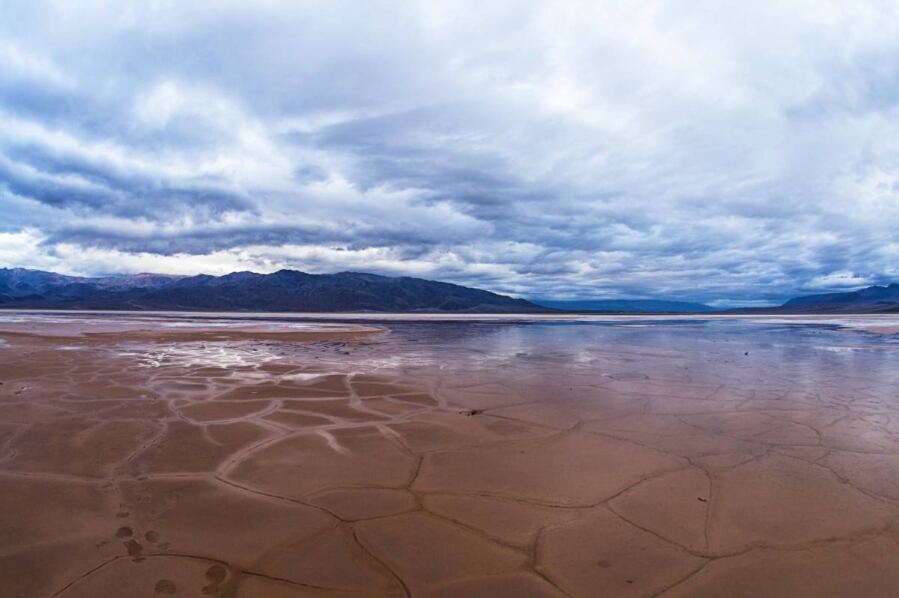Tessa Thompson’s Valkyrie may not be enamored with the added responsibility of being King of Asgard in Thor: Love and Thunder, but the actor feels just the opposite about her relatively new title of producer. In 2021, Thompson launched a production company known as Viva Maude and signed a first-look deal at HBO and HBO Max, with two TV projects already in development. Knowing that Thompson wanted to learn more about the process of producing, Love and Thunder director Taika Waititi invited her to participate in the postproduction process of his Thor: Ragnarok follow-up. And while watching an early cut, Thompson even fought for a quick moment involving “Val” and two actor characters played by Matt Damon and Luke Hemsworth.
“There was one cut where that bit went away and I was so sad, but then it came back and I was so happy. I was like, ‘That has to be in the movie!’” Thompson tells The Hollywood Reporter. “So I was very sad for a brief second when it wasn’t there, but that was so fun. Having them around to explore the importance of theater and storytelling, as expressed in Asgardian culture, I just loved that.”
Thompson is also opening up about her recent experience on Creed III and how the dynamic between her and Michael B. Jordan didn’t change all that much despite him serving as director. Much like Waititi, Jordan welcomed Thompson’s feedback as they further developed the story and her character, Bianca.
“In the past, it’s been a lot of work to make sure that she has agency and an arc in the context of these sports films, essentially,” Thompson says. “I wanted to make sure that she’s not just moving the plot forward, and that she actually has something interesting to do. And I typically do that work with the writers … but this time around, I could do that work more actively with Mike. I also had a lot more freedom to improvise on the day than the past ones.”
In 2018, Thompson led Nia DaCosta’s feature directorial debut, Little Woods, which revolves around Thompson’s Ollie and Lily James’ Deb as the latter seeks safe reproductive care in a rural town where it’s illegal. After the U.S. Supreme Court reversed Roe v. Wade in late June, Thompson and DaCosta can’t help but feel dismay as they look ahead to their next collaboration. (She remains mum if Valkyrie shows up in DaCosta’s The Marvels or if that next collaboration will be in the filmmaker’s recently announced Hedda Gabler for Orion and Plan B.)
“We were making something [Little Woods] that at the time felt like a worst-case scenario for a young woman in this country,” Thompson recalls. “And now, it’s like, ‘Man, we only scratched the surface of the worst-case scenario.’ We’re now living in the worst case.”
In a recent conversation with THR, Thompson also discusses her friendship with Natalie Portman and the night-and-day difference between Love and Thunder’s set and their last go-round together on Alex Garland’s Annihilation. Then she dispels some popular misconceptions about the way Christian Bale and Ed Harris work.
So how does it feel to be the latest spokesperson for Old Spice?
(Laughs.) It’s a pleasure and an honor, actually. Funnily enough, Old Spice was the first deodorant I ever used because it was my grandfather’s deodorant of choice. And so I remember being a little girl and using his Old Spice. So there you have it. (Laughs.) I’ve always really loved the smell, and since I used it when I was too young to need deodorant, I remember how it made me feel like an adult. It also reminded me of my grandfather, so I’ve always had a fondness for Old Spice.
Valkyrie also rocks a Phantom of the Opera shirt at one point. Has she gotten into musicals during her time on New Asgard?
She has! She’s gotten into musical theater. I imagine that she took a trip because part of being king is to meet leaders from different nations. So she’s spent a little bit of time away from New Asgard on a political tour, I suppose. Diplomatic duties. So she probably had a couple days in New York, where she saw some theater and became fond of it. I imagine that she also liked Cats and Chicago and some of the other quintessential long-running Broadway shows. (Laughs.)
So despite being very well-dressed as the King of Asgard, Val is not enjoying the role of King, and during her reign, New Asgard has turned into a tourist destination of sorts. Is the commercialization of the village one of the reasons for her discontent?
Yeah, it’s an interesting thing. She essentially spent thousands of years as a career soldier. That’s who the Valkyrie were in a sense. So she’s always served Asgard and would literally die for her people, except she’s hard to kill. So I think she enjoys that aspect of representing her people, but I don’t think she anticipated how bureaucratic it would be, which is probably why Thor passed the buck and gave her the job. And frankly, I don’t think it would have been quite as bureaucratic had their new home not become, as you said, such a tourist destination. Not for nothing, I understand that in terms of the intersection of art and commerce. When you love what you do, you’re so happy to do it on a bigger scale, but a bigger scale always leads to little bits and bobs that you didn’t have to contend with when you were doing it on a smaller scale and a little more on your own terms. So she’s trying to navigate that part of it.

Tessa Thompson as King Valkyrie in Marvel Studios’ Thor: Love and Thunder.
Jasin Boland/Marvel Studios
Before setting out on a mission, Val stresses that they should only pack “essentials,” which includes a keg of beer. Since you had to travel to the other side of the world (Australia) to shoot this movie, what was your most important essential?
(Laughs.) This is such a boring answer, but probably toiletries. This is actually a great question because when I went to Australia, we still had to do two weeks of quarantine. I think they’ve relaxed this now, but I went straight from the airport into a quarantine facility. The Australian government really had it on lock, no pun intended. So they were running such a well-oiled machine, and Marvel was so generous in terms of providing me with whatever I needed, particularly because I was getting into Valkyrie shape. So my room was loaded with exercise equipment and weights. But one of the essentials that I brought was pea protein powder because I was worried about not being able to get it there. That’s embarrassing, but it’s true.
So you’ve mentioned that Gorr the God Butcher was rather intimidating on set, but how much of that was just the Christian Bale of it all?
(Laughs.) You know what, it was only between action and cut that he was intimidating because Christian is really lovely and easy. With someone who is as decorated and fantastic an actor as he is, there is a collective feeling where everyone’s like, “All right, let’s get our shit together. Christian Bale’s coming.” But he’s so lovely. During our fight scene together, he did a funny thing where he would check on me constantly. He checked on me every time they would cut and sometimes before they would cut, he was just so insistent on making sure that I felt comfortable and that I was OK. And in between takes when [Gorr] was being emotionally intimidating, Christian was also so complimentary and lovely to me about my work.
So I wouldn’t say I was surprised because I didn’t really know what to expect, but he is just incredibly generous. He also has a fantastic ability to go from being so present and chatty and not in character to then being entirely immersed in it. He has such dexterity as an actor that way. Some people might think he’d be inclined to stay in it the whole time, but the truth is he didn’t. He can turn it on and off, and every fiber of his being is in it when he’s in it. And then he’ll be hanging out with his kids or talking about the surf and what he did that weekend. So he gets to know you in a really genuine way in between takes.

Tessa Thompson (left) as Valkyrie and Natalie Portman as Mighty Thor in Marvel Studios’ Thor: Love and Thunder.
Jasin Boland/Marvel Studios
Was a Taika Waititi set with Natalie Portman markedly different from Alex Garland’s Annihilation set with Natalie Portman?
(Laughs.) Yeah, really different. Natalie and I were talking about this yesterday, actually. With every project, the energy of the script is embedded in the experience of making the film, so Annihilation was really weird. These women find themselves in this really strange, sometimes beguiling, unsettling space, both geographically and in some cases, emotionally and mentally. And so it was a pleasure to make that movie and to get to know Natalie. That collection of talent was tremendous, and we all became close and had fun. We also shot that film entirely in sequence, which is really, really rare. So people would wrap when they would disappear, and it was pretty much just Natalie and I at the end. So there was a weird energy on that set because that’s what the film wanted or needed.
With Taika, he does a tremendous amount to make his sets feel really fun, whether it’s music or improvisation. So [Love and Thunder] explores love and all its manifestations: familial love, love of your job, love of your community and self-love. And everyone’s kids were on set all the time, so it was just a really joyful experience. Natalie and I are friends outside of the context of work, so it was nice to have a very different filmmaking experience with her.

Tessa Thompson as King Valkyrie in Marvel Studios’ Thor: Love and Thunder.
Jasin Boland/Marvel Studios
Midway through the film, Korg comments on how Val routinely numbs the pain of lost love. Is that mostly why she’s trying to do her part to help Jane and Thor’s relationship?
Yeah, I think so. That’s certainly a big part of it. It’s the very thing that [Valkyrie] probably needs to do for herself, which is reengage with the idea of being vulnerable and exploring love. And sometimes, it’s easier to help your friend see that. I don’t know if it’s clear in the film, but we imagined that Jane has been in New Asgard for a couple months. We explored ways to make it more clear, but it all felt too expositional. She was just hanging out in New Asgard, and Valkyrie just didn’t bother to let Thor know. She didn’t text him to be like, “Hey, your ex is here.” So they’ve been getting to know each other, and there’s a real fondness that Valkyrie has for her. She’s such a catch; Thor should be so lucky. [Valkyrie] also loves Thor a lot, so it’s this thing of, “Oh, these are two people I really love. What about this?”
One of my favorite scenes is Val’s interaction with Matt Damon and Luke Hemsworth’s actor characters. Did you also enjoy seeing the offstage personas of their characters?
I loved it! These movies go through so many different edits, so things stay and go away. And typically, I just watch these movies at the premiere, but this time around, I actually watched a couple of the cuts because I found that process really interesting. I’m now producing more, so I really wanted to understand how the “sausage” is made. And so there was one cut where that bit went away and I was so sad, but then it came back and I was so happy. (Laughs.) I was like, “That has to be in the movie!” So I was very sad for a brief second when it wasn’t there, but yeah, that was so fun. Having them around to explore the importance of theater and storytelling, as expressed in Asgardian culture, I just loved that.
I last spoke to you for the movie in which you wore black, and we discussed the time that you and some other Marvel women approached Kevin Feige to pitch an A-Force-type movie. Since it’s been a minute, has anyone reminded him in passing?
No, actually, but maybe we should remind him. Yeah, that sort of happened naturally. We were taking a photograph for the [10th] anniversary of Marvel [Studios], and it was a rare occasion where all the Marvel actors were in one place at one time. So all of the women were standing around chatting, and with Kevin across the room, we were kind of like, “Hey, wait a minute.” So it came up in casual conversation, but I still think it’s a great idea.
I mainly want Valkyrie and Carol Danvers (Brie Larson) to do something more than just play Fortnite on YouTube, so I’m hoping that someone will make that happen relatively soon.
(Laughs.) Me too. Brie is another person who’s a good friend of mine, and it would be so fun to get to make something together, especially after the fun I’ve had with Natalie the last couple days. We’ve been doing a lot of press together, and we’ve been pitching each other movies back and forth because we accidentally arrived one day looking like Cher and Dionne from Clueless. So we were like, “Wait a minute,” and we’ve just been pitching movies that we might like to do. That’s how these movies are sometimes born. Thor: Ragnarok was born out of this idea for a buddy comedy between Mark Ruffalo and Chris. So I like to imagine ways to basically hang out with my friends while making something.

Michael B. Jordan and Tessa Thompson in ‘Creed’ (2015).
Warner Bros./Courtesy Everett Collection
So how’s Bianca Taylor doing?
(Laughs.) Bianca’s great! I’m glad you asked because Mike [B. Jordan] just sent me a voice memo this morning reminding me that I need to send him a little bit of temp ADR. I think he has his first cut of the film and he’s going to do a little screening soon. So he wants to pop in a little temp ADR, but it’s going really well. He’s really happy with the edit. Bianca’s really great. It was so fun making [Creed III] in particular because Mike and I have such a close friendship and so much trust. So it was great to get to really collaborate with him on character and script. It was just such a pleasure, similar to Taika and I on [Thor: Love and Thunder]. It was really nice to be actively working on the script and pitching ideas back and forth about where Val would be. So I really felt integral to shaping the character’s journey this time around, and that was definitely the same with Bianca. I’m excited for fans that have been following us to see the evolution and growth of both of these characters. We also set the foundation for them to continue to grow, if fans still want to show up and see these films.
You and Mike had a very specific dynamic on the first two films, but with him directing Creed III, did it take a minute to get used to that new dynamic between the two of you?
I thought that it would, but it didn’t. It was so interesting because I wondered what it would be like for Mike to have to be a scene partner and a director. But when we were doing the scene work, he felt entirely in it. We got back into those character dynamics very easily. The only thing that was different was the time. We’d do the scene, and then he would have to go to the monitor sometimes to watch. So that felt a little different. But dynamically, we were just in the pocket of what we’ve been doing.
In the past, it’s been a lot of work to make sure that she has agency and an arc in the context of these sports films, essentially. I wanted to make sure that she’s not just moving the plot forward, and that she actually has something interesting to do. And I typically do that work with the writers, which has been a great process thus far, but this time around, I could do that work more actively with Mike. I also had a lot more freedom to improvise on the day than the past ones. He gave me a lot of license to do that, so that felt different. But it didn’t change the dynamic between these characters.
We’ve been making these films for almost eight years, and Mike and I have grown up a lot. So there are a lot of ways in which the trajectory of these characters also has an interesting sort of poetry to our own personal journeys. That’s the fascinating thing about playing a character over many years. You get to track your growth relative to theirs or sometimes in concert with theirs.
Not a lot of people can say that they made Ed Harris scream in pain, but Charlotte Hale did just that during the second episode of Westworld season four. Did you enjoy your scenes with him this year?
Ed Harris is one of the only actors that I’ve worked opposite where I’ve been like, “Holy shit, I’m working opposite Ed Harris. Get it together.” (Laughs.) I still have moments like that with him because he’s remarkable, and he’s legitimately terrifying as the Man in Black. But he’s lovely, and we became really close this season, more so than any other. We had a lot to do together, and I learned so much about his process.
Film is so different from my experience with theater. You get to know someone’s process by being in close proximity to it, but there isn’t a lot of very candid conversation about how we make work. For example, some actors don’t ever like to rehearse — and that’s totally great — but you don’t really get to understand how people arrive at the work they’re doing. So this season was really lovely because we could talk about the work — and not just the work that we were doing on Westworld. We also talked more broadly about the work that we’ve done over the course of our careers and the work that we still want to do.
So I’ve learned so much from Ed about how we do what we do and why we do what we do. Ed really enjoys his part on Westworld because it gives him the ability to exercise some of our rage. You don’t have a lot of safe opportunities to do that. So I was able to watch him have fun with that and then still be a lovely human being.
Charlotte is really making some power moves against humanity, and given the way things have gone in her world, I don’t blame her one bit. I’m actually rooting for her.
(Laughs.) Yeah, that’s the thing that’s so interesting about villains, and it’s actually something that I thought a lot about while watching Christian. These are folks who are disenchanted with the powers that be or leadership or the world as we have found it, so I don’t really blame [Charlotte] necessarily. She’s not just after world domination, although that’s certainly a part of it. She’s really about understanding what the best path is for her people. So in order to be a really great and strong leader, you shouldn’t make anyone do anything; you invite them. But Charlotte is trying to make hosts see that being tethered to humanity and to human form is a fool’s errand. Humans don’t really know how to take care of the planet, how to take care of each other, and waiting around for them to learn it is silly. And there are definitely times when I understand that and agree with that. So to play a villain, you have to connect with the parts of their mission that you actually can relate to and that you think are righteous. And then it’s good fun.

Lily James (left) and Tessa Thompson in Little Woods, 2018.
Neon / courtesy Everett Collection
Lastly, in light of the recent Supreme Court decision, have you and the Little Woods team been in contact at all?
Yeah, I just saw [director] Nia DaCosta last night. We’re super good friends, and we continue to be collaborators. More on that later when it’s announced … (Laughs.) But we’re still in conversation with each other, and Little Woods was not an easy film to make at all. It really started with Nia thinking about access to reproductive care in this country, and she started to do Google searches, basically, about places where it was the hardest to have access to safe and reasonable reproductive care. So that’s how the idea for Little Woods was born. And then she began to think, “I want to make something that feels kind of like a Western and centers on a woman of color in this rural town, because rural America, by and large, is pretty white in terms of Hollywood iconography. I want to set a Black woman in this world.”
One of the reasons why I wanted to tell stories in the first place is because I really do think that political change is always preceded by cultural change. So making a film like Little Woods feels really important to me. And when you make something like that, you think, “This is one way I can contribute to what ought to be an important cultural conversation.” And these times recently … (Thompson sighs.) Nia and I were like, “Huh.”
I remember having conversations with Justin Simien when we started to work on Dear White People — and this was before the surge of those weird college parties that were happening — but he knew he wanted to talk about being a Black face in a mostly white space. And then the world caught up with his satire. At times, he was like, “Is this too much?” And then suddenly, it almost wasn’t enough. So I think that’s how we feel in regard to Little Woods. We were making something that at the time felt like a worst-case scenario for a young woman in this country. And now, it’s like, “Man, we only scratched the surface of the worst-case scenario.” We’re now living in the worst case.
I’ve been having this conversation a lot, actually, in producing and because of some of the things on the slate at my [production] company, Viva Maude. It takes a while to get television into development, and so you’re like, “Will we miss the window to talk about something because of the way things seem to be moving?” But people have been tagging us and posting about watching Little Woods at this time, so I guess the only balm is to keep trying to tell stories, in addition to really working as an active and engaged citizen.
This interview has been edited for length and clarity. Thor: Love and Thunder is now playing in movie theaters.
















































